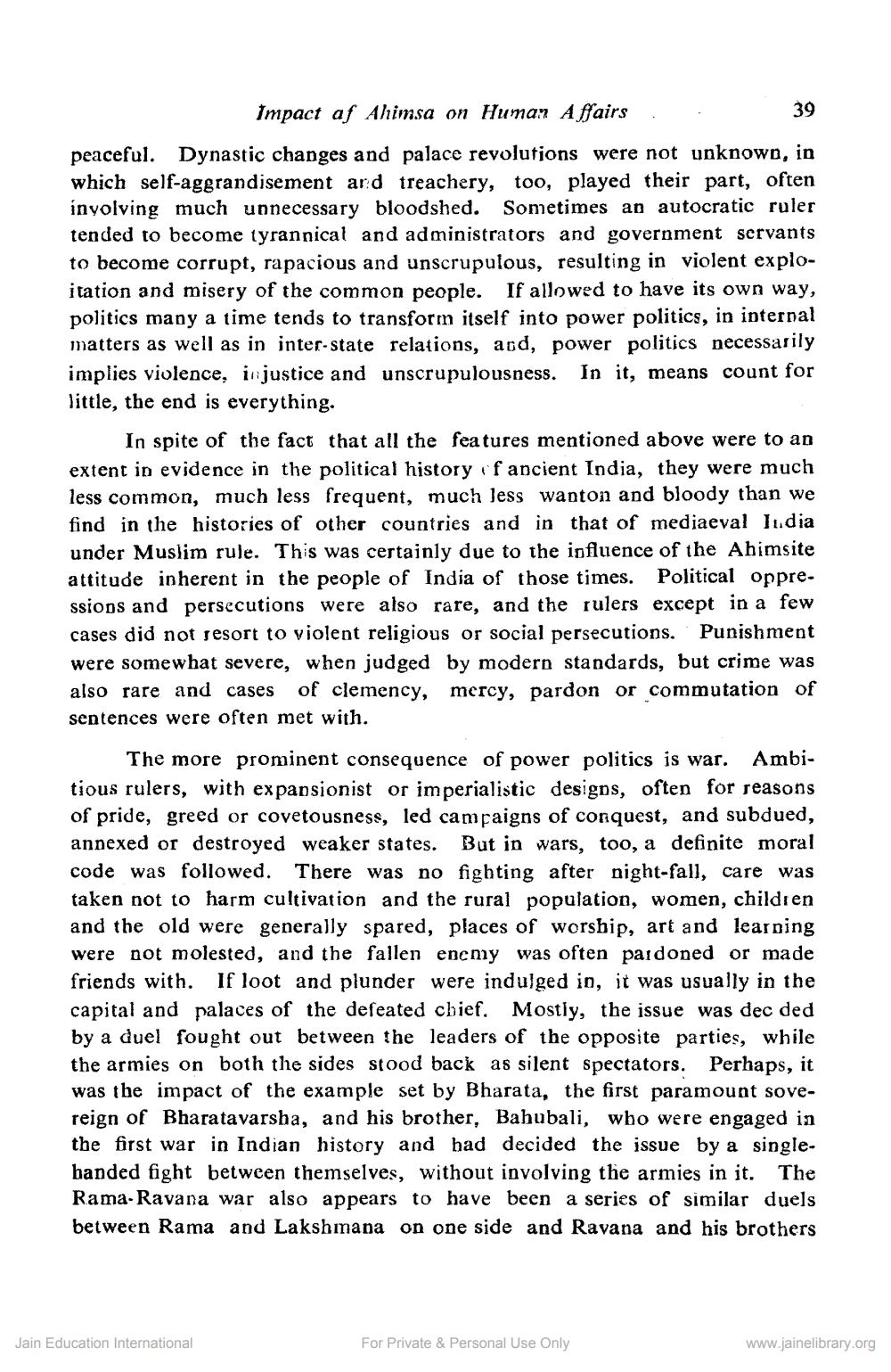________________
Impact af Ahimsa on Human Affairs
39
peaceful. Dynastic changes and palace revolutions were not unknown, in which self-aggrandisement and treachery, too, played their part, often involving much unnecessary bloodshed. Sometimes an autocratic ruler tended to become tyrannical and administrators and government servants to become corrupt, rapacious and unscrupulous, resulting in violent exploitation and misery of the common people. If allowed to have its own way, politics many a time tends to transform itself into power politics, in internal matters as well as in inter-state relations, and, power politics necessarily implies violence, injustice and unscrupulousness. In it, means count for
little, the end is everything.
In spite of the fact that all the features mentioned above were to an extent in evidence in the political history of ancient India, they were much less common, much less frequent, much less wanton and bloody than we find in the histories of other countries and in that of mediaeval India under Muslim rule. This was certainly due to the influence of the Ahimsite attitude inherent in the people of India of those times. Political oppressions and persecutions were also rare, and the rulers except in a few cases did not resort to violent religious or social persecutions. Punishment were somewhat severe, when judged by modern standards, but crime was also rare and cases of clemency, mercy, pardon or commutation of sentences were often met with.
The more prominent consequence of power politics is war. Ambitious rulers, with expansionist or imperialistic designs, often for reasons of pride, greed or covetousness, led campaigns of conquest, and subdued, annexed or destroyed weaker states. But in wars, too, a definite moral code was followed. There was no fighting after night-fall, care was taken not to harm cultivation and the rural population, women, children and the old were generally spared, places of worship, art and learning were not molested, and the fallen enemy was often pardoned or made friends with. If loot and plunder were indulged in, it was usually in the capital and palaces of the defeated chief. Mostly, the issue was dec ded by a duel fought out between the leaders of the opposite parties, while the armies on both the sides stood back as silent spectators. Perhaps, it was the impact of the example set by Bharata, the first paramount sovereign of Bharatavarsha, and his brother, Bahubali, who were engaged in the first war in Indian history and had decided the issue by a singlehanded fight between themselves, without involving the armies in it. The Rama-Ravana war also appears to have been a series of similar duels between Rama and Lakshmana on one side and Ravana and his brothers
Jain Education International
For Private & Personal Use Only
www.jainelibrary.org




